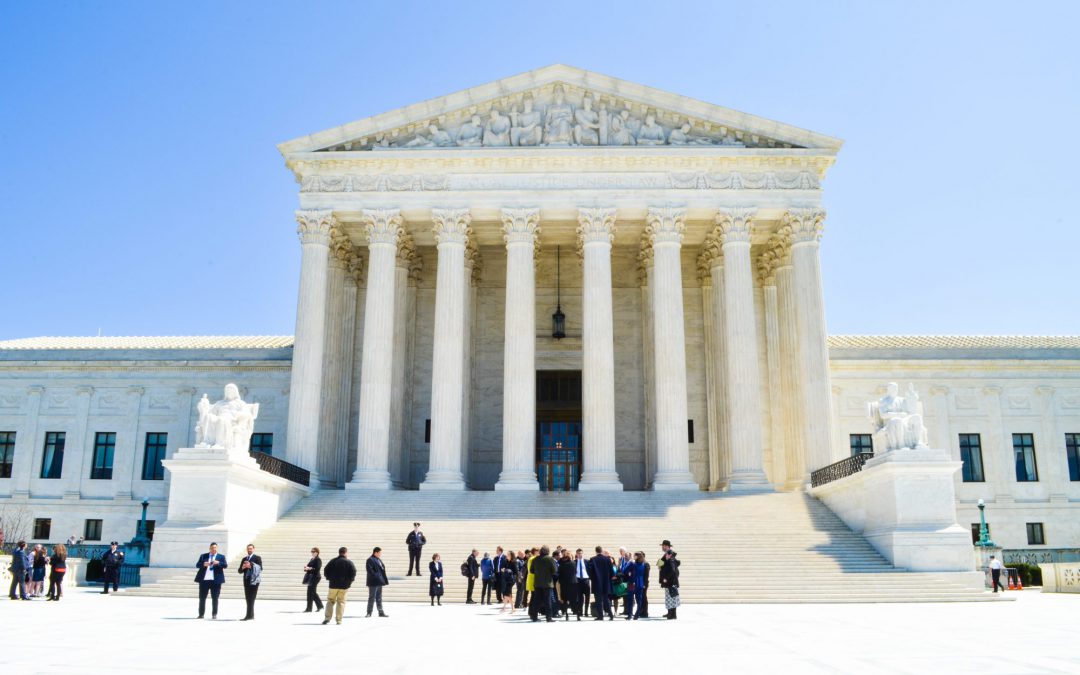WASHINGTON – Supreme Court justices from both the left- and right-leaning blocks appeared skeptical of an argument that Boston officials could reject a Christian flag as part of a program in which the city occasionally replaces its own flag with those requested by private citizens.
“If you look at the lack of control over this flagpole, it’s hard not to think of it as a public forum,” Justice Elena Kagan said. “And then it’s hard not to think that excluding religious speech from a public forum…is a violation of the free speech part of the First Amendment.”
The city has previously raised an LGBTQ pride flag, a flag commemorating Juneteenth and flags of other nations to commemorate holidays or visiting dignitaries, according to a brief filed by attorneys representing Howard Shurtleff, who asked the city in 2017 to fly a flag bearing the Latin cross.
The city rejected Shurtleff’s request, the first denial in the 284 flag requests the city reviewed and approved between 2005 and 2017. The city commissioner, at the time, cited concerns that the Christian flag would be seen as “an endorsement by the city of a particular religion,” thereby violating the separation of church and state, as the reason for the denial.
“Private parties are free to wave their flags on City Hall Plaza or even raise a temporary flagpole there, but they cannot commandeer the city’s flagpole to send a message the city does not endorse,” said Douglas Hallward-Driemeier, arguing on behalf of the city.
But Hallward-Driemeier said the circumstances would be different if, by miscommunication and against city intent, the flagpole was deemed a public forum. In this case, he said the city would not be able to exclude religious, offensive or discriminatory speech from proposed flags.
Several justices said the program’s policy at the time of Shurtleff’s request implied the flagpole was a public forum.
“When you say anybody can speak by putting up a flag, with these few exceptions, are you not creating a forum for private speech rather than speaking your own mind?” Justice Samuel Alito asked.
Justice Kagan wondered whether such a policy would force the city to accept a citizen-suggested flag bearing a swastika — which Mathew Staver, arguing for Shurtleff, said it would.
“So, really, what you’re saying is that the city can’t possibly have a kind of open policy like this because no city is going to want to put up a swastika or a Ku Klux Klan flag or something like that,” Kagan said.
One alternative, proposed by Sopan Joshi, a Justice Department attorney who argued for Shurtleff as a friend of the court, would be for Boston to redesign the program as a “limited public forum.”
“This case, at least below, was litigated as a binary choice between government speech on the one hand and a designated public forum on the other,” Joshi said, “but I think that ignores the fact that this Court has recognized there are limited forums or non-public forums in which content-based and even speaker-based restrictions on the use of governmental property for communicative purposes are acceptable.”
Going off of Joshi’s hypothetical, Justice Amy Coney Barrett said increased government involvement would help create the parameters of the proposed limited public forum — and make it clear the city supports any ideas displayed on the flags.
“If the government gets so involved in it, that it’s standing outside endorsing that speech, then it would be government speech,” Barrett said.
Shurtleff made his original request on behalf of Camp Constitution, a group founded to “enhance understanding of… Judeo-Christian moral heritage,” according to its mission statement. Camp Constitution has also questioned the safety and efficacy of COVID-19 vaccines — but the Biden administration and the American Civil Liberties Union are among those who have filed briefs in support of Camp Constitution arguments in this case.
While one of three flag poles outside Boston City Hall accepts citizen requests, the other two display the U.S. and Massachusetts flags. Justice Stephen Breyer challenged Staver’s argument that passersby would assume the third flag was not a message of the city.
“Go to Boston, go look at the city plaza. You see three flag poles…and they’re right in front of the city hall,” Breyer said. “Of course you’re going to think it has something to do with the city.”
Boston City Hall officials in October announced a pause to re-evaluate the flag-raising program to ensure it “complies with Constitutional requirements.”

